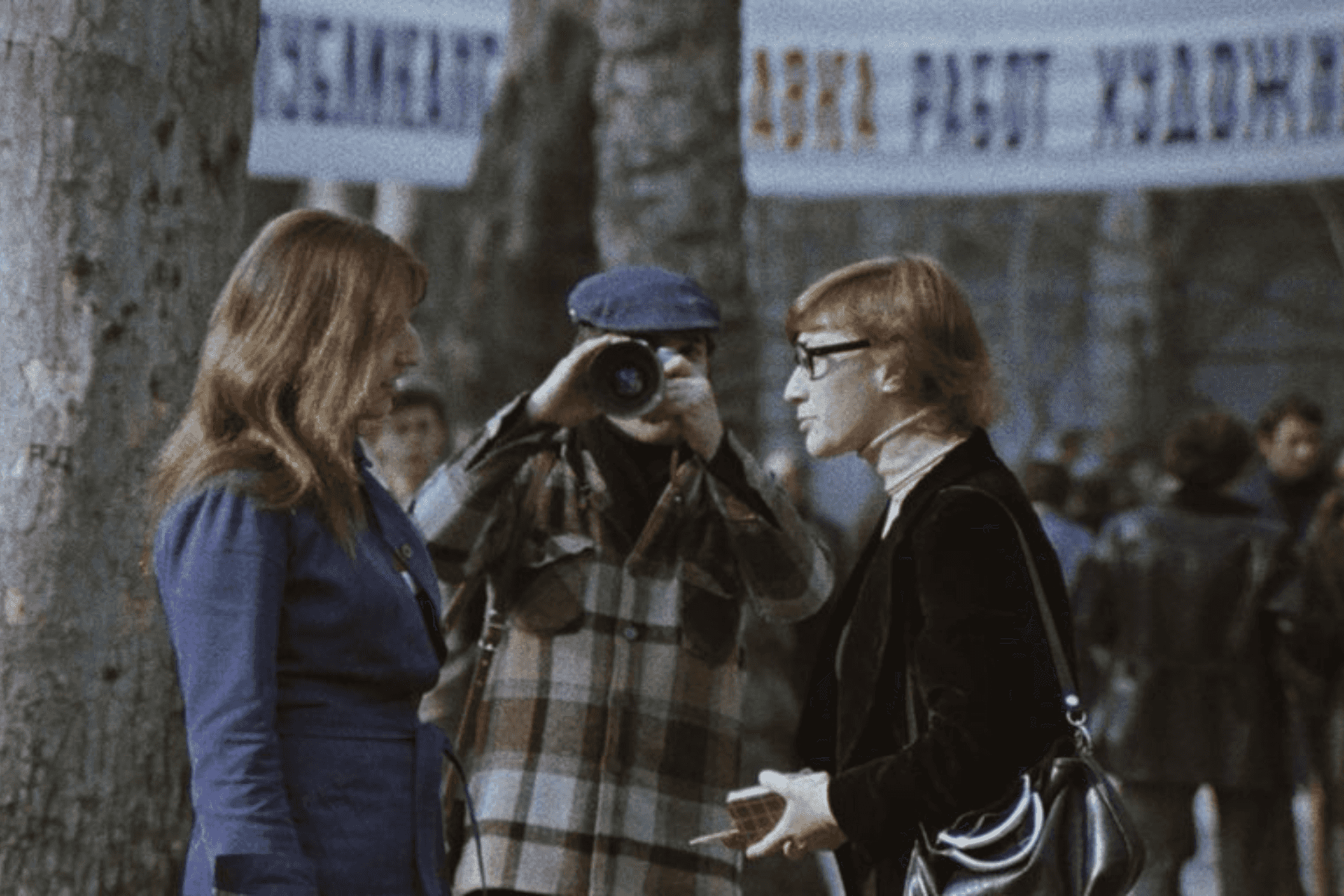★★★★☆
Georgian director Temo Kuprava’s take on the classic tale centres Medea’s Caucasian origins for a local audience.
The tale of Medea originates in Greek mythology. As the daughter of King Aeëtes of Colchis — a kingdom generally thought to have existed on the eastern coast of the Black Sea in present-day western Georgia and Abkhazia — Medea is crucial in aiding the Greek hero Jason in stealing the Golden Fleece from her father, while killing her brother in the process. She and Jason flee Colchis together, spending the next ten years in presumably wedded bliss before settling in Corinth, at which point Jason abandons Medea for Creusa, the daughter of the Corinthian King Creon. It is at this point Medea comes to the forefront of the story as a woman wronged, intent on revenge.
Drawing from the original Greek tragedy by Euripides, as well as French dramatist Jean Anouilh’s 1946 adaptation, Kupradze’s Medea is set on the eve of Jason’s wedding to Creusa.
The entirety of the performance takes place within an austere, nature-focused set filled with stones and sand. The costuming is simple, but illustrative of the time period, working well amongst the unembellished staging. Performed in the small attic stage at the Kote Marjanishvili State Professional Drama Theatre, the actors’ emotions are forced to the forefront of their performances, with nothing to hide behind.
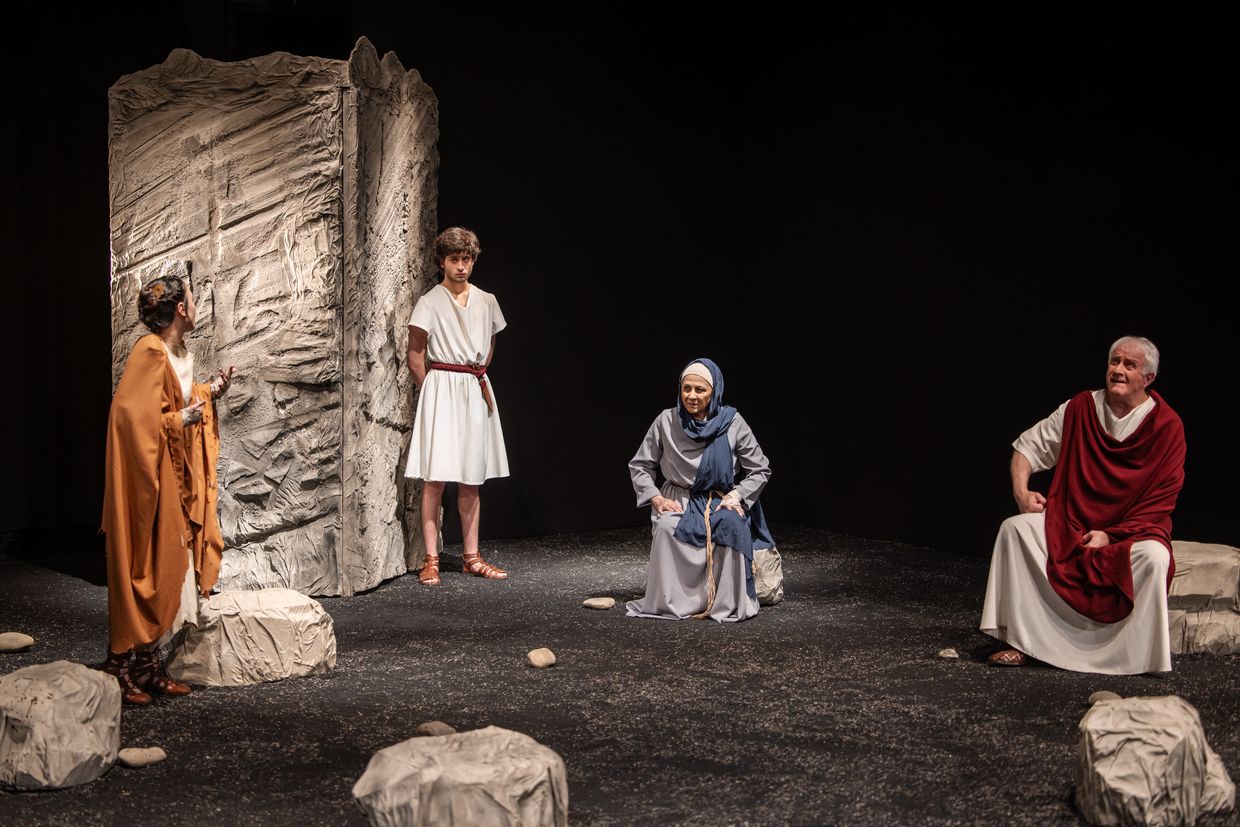
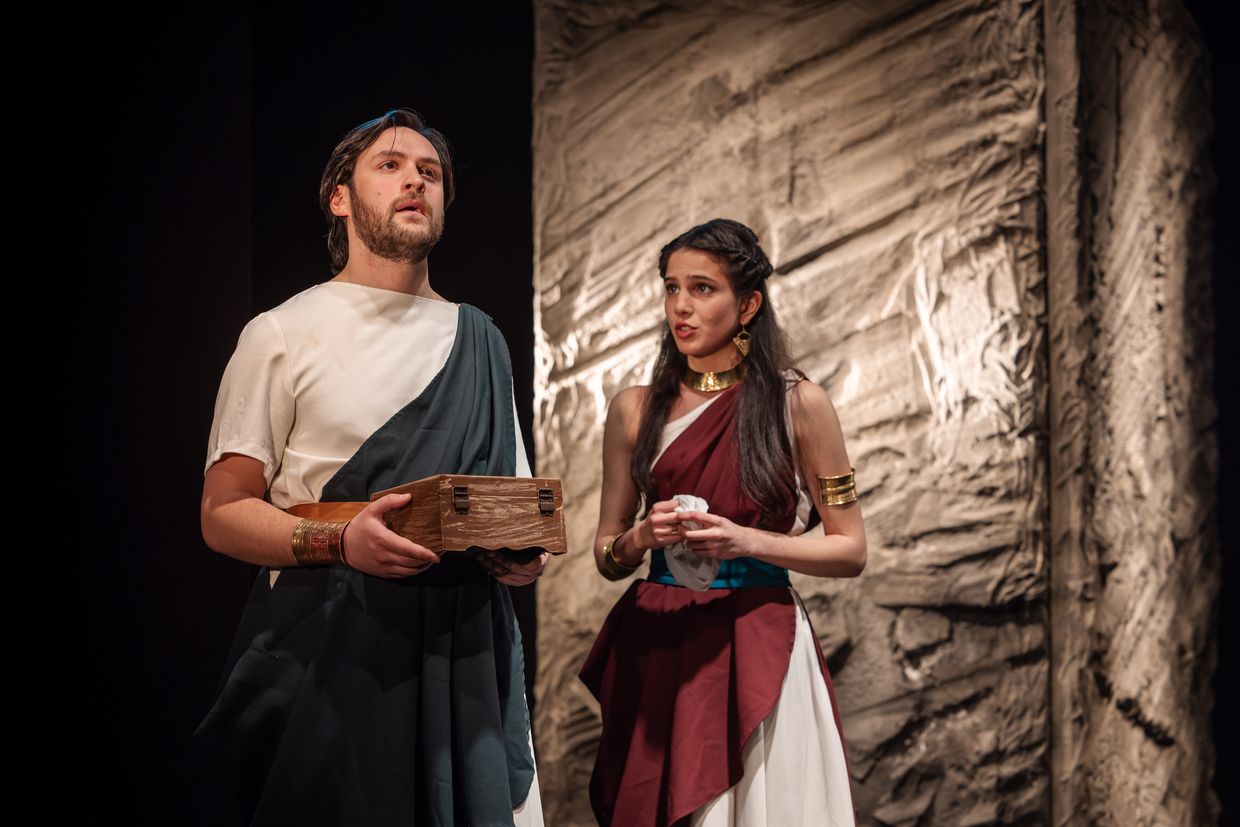
From the very first lines, it is made clear Kuprava’s Medea will focus on what it means to be exiled from one’s homeland, and what it really means for a woman and mother to sacrifice everything for love. Indeed, for Kuprava, the wife intent on vengeance and the mother concerned for her children’s safety do not need to be opposing motifs, but rather inhabit one complex character who struggles with what she must do when cast aside.
It is an almost feminist examination of Medea as an archetype, delving into her spiralling thoughts during the last hours before Jason’s wedding, as she tries to uncover who Medea really is away from her husband’s shadow.
Kuprava also clearly centres Medea as a foreigner amongst the local Greeks. Despite the fact Medea’s crimes were done at the orders of Jason, it is her name that has consistently been tarred and who now faces the consequences. As King Creon emphasises, this is because Jason is ‘one of us’, while Medea, with her ‘witchcraft and rage’, clearly comes from the land of barbarians — the Caucasus.
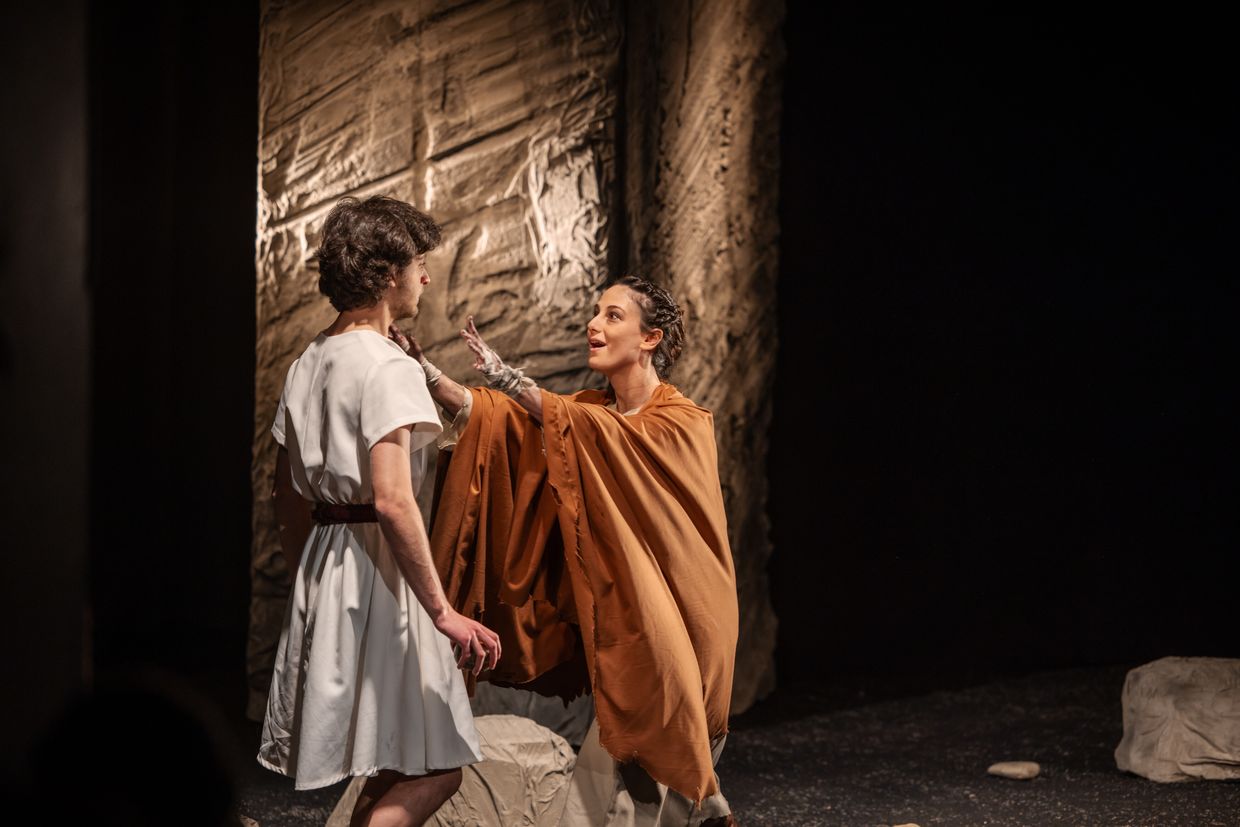
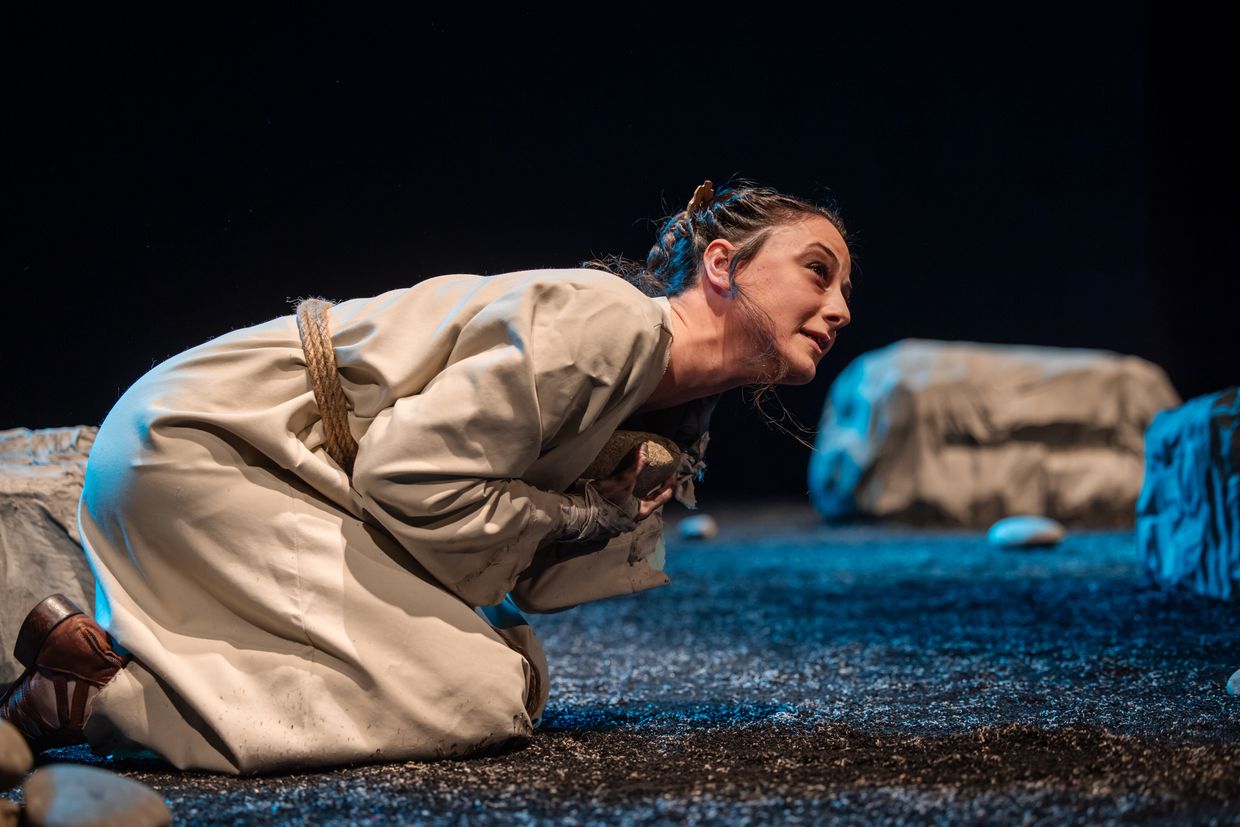
While these aspects are emphasised, Kuprava does not stray from the story’s traditional, tragic ending. Following the lead of Euripides, Kuprava’s story is built on explaining how Medea comes to the decision to kill Creusa before taking the lives of her own children with Jason, in this case two daughters.
Yet while the focus is clearly on Medea, as the titular character, Kuprava also takes time to explore Jason’s motives, portraying him with more depth than just a man looking for his next conquest. The relationship between Medea and Jason is complex, and Kuprava does this complexity justice.
Actress Nini Kvirikashvili shines as Medea, fully imbuing the character with raw fervour and passion, and creating an impressive performance that is hard to look away from. Ketevan Gegeshidze, as Medea’s nurse and mother-figure as well as the play’s narrator, also holds her own.
Medea premiered at the Kote Marjanishvili State Professional Drama Theatre on 13 April 2025, and was recently staged as part of the 2025 Tbilisi International Festival of Theatre. It is now a part of the theatre’s official repertoire, complete with English subtitles.







